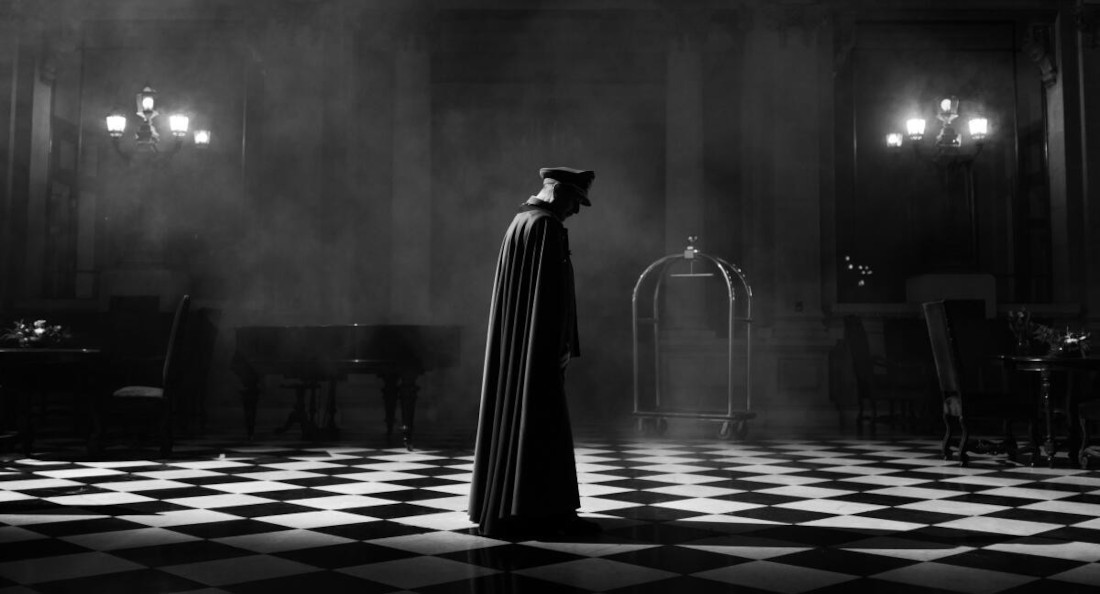Critipeg: El Conde
★★★★★
On Sept. 11, 1973, Salvador Allende, the democratically elected socialist leader of Chile, was ousted in a CIA-backed military coup. The country’s new dictator, Gen. Augusto Pinochet, ruled for 17 years. Pinochet was a far-right authoritarian who murdered thousands, tortured and imprisoned tens of thousands and embezzled millions of dollars for himself and his family, all while enjoying material and political support from the United States and a close personal friendship with Margaret Thatcher.
In reality, Pinochet died in 2006 after years of evading justice for his crimes. In El Conde, the new film from Chilean writer-director Pablo Larraín, Pinochet isn’t dead – he’s a 250-year-old vampire. This pitchblack satire traces Pinochet’s origins to the 18th century, as a loyal soldier of Louis XVI. Following the French Revolution, he leaves Paris and travels the world as a blood-sucking, counter-revolutionary demon.
Jaime Vadell plays Pinochet as a walking contradiction. Exiled to a secret island compound, he lives in a tin shack still adorned with chandeliers, antique books and memorabilia from his role models (Napoleon, Hitler and Darth Vader).
He shuffles around his home as a frail sadsack but takes to the skies as a graceful, murdering beast. He is, as all authoritarians are, pathetic, no longer capable of concealing his brittle ego. He shares his island with his collaborator wife (Gloria Münchmeyer) and a thuggish deputy-turned-butler (Alfredo Castro), and his parasitic children descend for a visit to further enlarge their stolen inheritances.
In addition to its satirical bona fides, El Conde also functions as a genuine vampire picture, replete with gothic imagery and some genuinely shocking violence. Cinematographer Edward Lachman’s stylish digital black-and-white gives a beauty to even the creepiest scenes. When a young Pinochet lovingly licks Marie Antoinette’s fresh blood from her guillotine, Lachman and Larraín make sure you can see his breath fogging up the blade.
Larraín’s more recent English-language work (2016’s Jackie and 2021’s Spencer) have been sorrowful portraits of titanic figures of late-20th-century history. His earlier Spanish-language films (2008’s Tony Manero, 2010’s Post Mortem) were absurdist pictures of life in Pinochet’s Chile. El Conde, which is in Spanish but features voiceover narration in English (to explain why would spoil the fun), exists in both worlds at once, while also creating something that feels new and noteworthy.
It’s also notable that the movie was released on Netflix surprisingly quickly, only 15 days after its Aug. 31 world premiere at the Venice Film Festival. Frustratingly, like with all its foreign-language releases, most Netflix apps will automatically start playing the film with English overdubbing for its Hispanic characters. I can’t think of a better illustration of Netflix’s essential incompetence: paying to produce a daring piece of cinema, only to screw with it before the viewer hits “play.”
They don’t know how good they have it. El Conde is truly radical. It’s incendiary, provocative, and so much more exciting than anything playing the multiplex in 2023. Luis Buñuel and Bahman Gobadi were exiled from Spain and Iran for tamer works than this.
Published in Volume 78, Number 03 of The Uniter (September 21, 2023)








